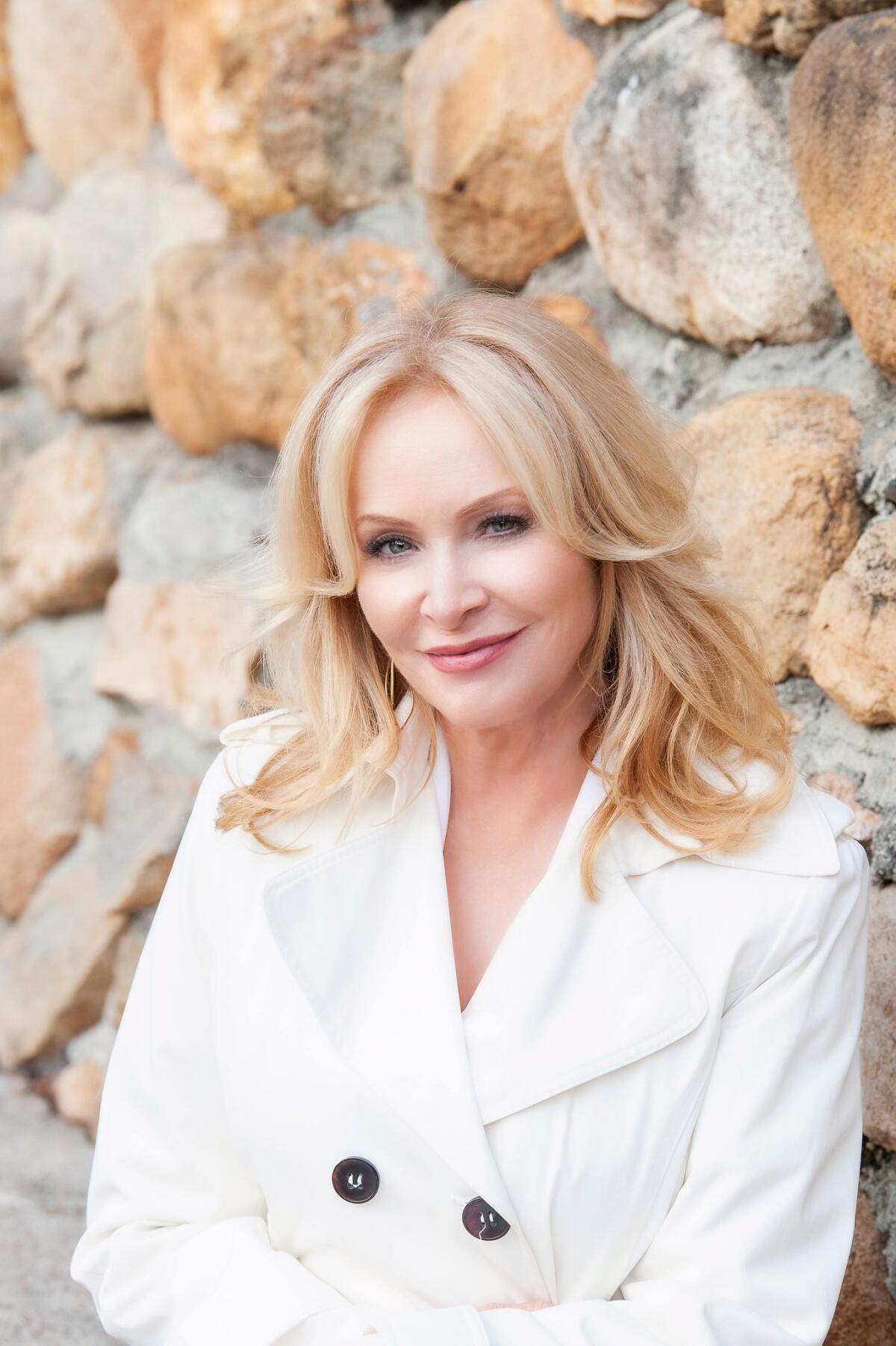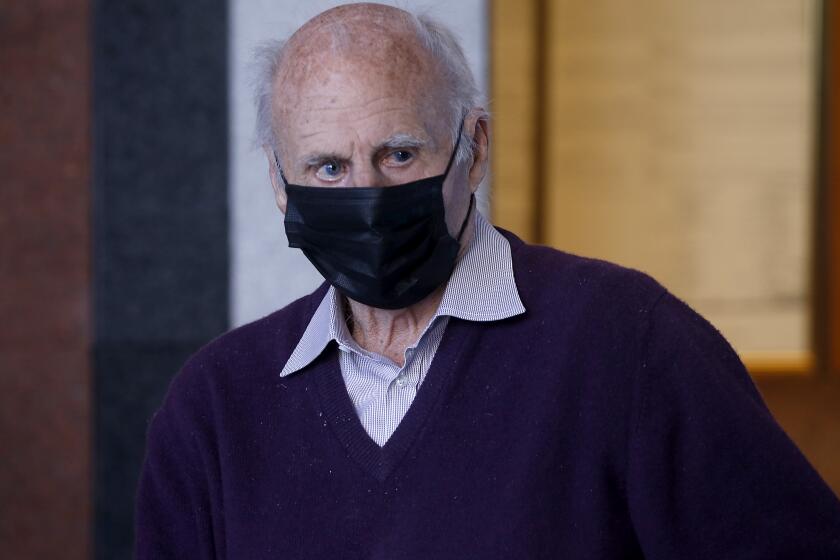Over 40 and female: Former San Diego TV anchor says she had to go

- Share via
SAN DIEGO — A trial is slated to start this week in a lawsuit brought by a former San Diego TV news anchor who has accused her employer of paying her $80,000 a year less than her male counterpart.
The lawsuit by Sandra Maas, formerly with KUSI-TV, alleges that McKinnon Broadcasting Co. violated the state’s Equal Pay Act; it also alleges age and gender discrimination and whistleblower retaliation.
Maas’ attorney, Josh Gruenberg, said last week that his client, who is 60, performed substantially similar work to Allen Denton when the pair anchored the station’s afternoon and evening news broadcast for six years. Gruenberg said both had decades of experience.
“We believe there is no legal or reasonable justification for paying Mr. Denton more,” Gruenberg said. “He was a hell of a news anchor, but so was Ms. Maas. They sat side by side for a number of years and did excellent work.”
Girardi, 83, sat stone-faced as a magistrate judge, a prosecutor and two public defenders appointed to represent him discussed his mental health.
Maas joined KUSI in 2004 as a morning co-anchor and began hosting the daily “Inside San Diego” program in 2007. In 2010, she was promoted to co-anchor of newscasts at 5, 6 and 10 p.m. and in 2016 produced a weekly “Healthy Living” segment.
According to court filings, Maas in 2017 started to suspect a pay differential, and a former manager confirmed that she was making at least $80,000 less a year than Denton — who was earning $240,000, she says. Both Denton and Maas left the station in 2019.
Maas said she raised the issue during contract negotiations, asking that her pay be on par with Denton’s.
“Unfortunately, Maas’s pay disparity complaint was not well received,” her attorney wrote in the trial brief filed last week.
Instead of investigating pay inequity, the brief states, the station’s human resources director pressed Maas to reveal her sources.
In court documents, Maas said she was offered a three-year contract that topped out at $190,000 in the final year.
Her trial brief argues that women over 40 faced different standards at the station than men.
“According to KUSI, women over forty had a ‘cycle’ and had to make room for a ‘new generation,’ while men over forty did not,” the brief states.
Attorneys for McKinnon Broadcasting did not respond to requests for comment last week.
In its trial brief, the company said the case concerns a news organization’s judgment “on how to best present the news, and on the type of news anchor best suited to work in the fast-paced, high pressure environment of its news room.”
The company argued that it treated and paid Maas fairly and said that in her last few years at the station, she was “not a good team member or journalist.”
The company said in filings that Denton had more experience, received more awards and worked harder. It also noted that Maas had not worked as a journalist since her departure from KUSI.
“Rather than earning money through her chosen profession, she has instead chosen to champion gender equity causes for free,” the station’s trial brief states, adding that Maas should not be compensated for lost income after leaving the station.
The station — which acknowledges in filings that it is “widely viewed in San Diego as a right-of-center news organization” — submitted several questions it wants to pose to potential jurors, including if they have refused to watch conservative stations or had participated in protests such as the Women’s March, the March for Science, Black Lives Matter rallies or the March for Life.
McKinnon wants the judge to prevent journalists from reporting on the salaries of other KUSI journalists, should those be revealed in open court.
Gruenberg says the case is about the salaries of Denton and Maas only, and no other salaries need be disclosed. He argues that the courtroom is open to the public and that the case is a matter of public interest: pay equity.
“To that end, it is probably important they can witness how the employer [KUSI] seeks to defend itself,” he wrote.
Those and other pretrial matters are slated to be addressed Monday.
The “GMA3” co-hosts have been off the air since December and will not return. The network said “we all agreed it’s best for everyone that they move on.”
More to Read
Sign up for Essential California
The most important California stories and recommendations in your inbox every morning.
You may occasionally receive promotional content from the Los Angeles Times.













